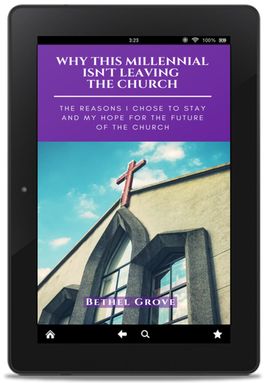|
It was just as I imagined it would be. Being such a huge fan of the original version of the film, my expectations were high, but the film met them and exceeded them in many ways. It was very special going to see this film during the special Opening Night Fan Event with my friend Angela to celebrate her birthday. We had waited for this movie for so long, and now it was finally here! It was not only in 3D, but it featured exclusive bonus content, including the “Beauty and the Beast” music video in 3D. I enjoyed every minute of it. I laughed, I cried. It was everything a good movie should be. However, with every good film, there should also come discussion about what you agree and disagree with in the film. In light of controversy among conservative Christian circles about the “exclusive gay moment” that director Bill Condon discussed prior to the film’s release, I wanted to take the opportunity to take a deeper look at the content of the film. [If you want to skip straight to my comments on the gay moment, go to the section titled “The Sub-Plot of Same-Sex Attraction Was Mostly Subtle But Completely Unnecessary”] I know I am a loyal fan of Beauty and the Beast, but I have done my best to approach this review in a critical fashion, so I can offer a balanced view. Greater Detail and Realism Draws You Deeper Into the Well-Loved StoryThis live action adaptation did an incredible job of taking the elements of the 1991 animated film and making it their own. The production team understood that they couldn’t just take the animated film script and just film it. It wouldn’t work the same way. They also didn’t just take the script from the popular Broadway musical version. They took careful consideration of what elements needed to stay, what elements needed to change, and what elements needed to be added to make a live action adaptation work. They even worked in a few elements from the original fairy tale that didn’t work in the animated film. They also brought in historical research to make elements more accurate to the period, which you can see in the design of buildings, costumes, and even the enchanted objects. Probably their bigger challenge was missing in the gaps of missing information from the animated film and filling in the details in a way that kept the integrity of the original story. For example, this film version mentions that the enchantress’ spell erased all memories of the prince, the castle, and all who lived there from the minds of their loved ones. These and other details also make the story more sense from a logistical standpoint. 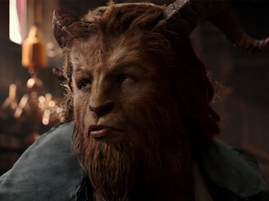 This version also make the story more human. Not to say the original film doesn’t connect on a human level, but the realism they brought into this version makes it feel like it could have actually happened in a time and age we have long forgotten. This was especially true of the character of the Beast. Dan Stevens did such an incredible job really giving this character a soul. Because of the digital work they were able to do with his face and body, I believed in him as a living breathing creature that had a real human soul trapped inside. Plus the story development that helps the audience understand his selfishness and anger makes his character all the more believable. It was captivating from start to finish. Transformative Redemption Found in Sacrificial Love is “A Tale as Old as Time” Even with all the changes made to the original version, the essence of the message at the heart of the story remained intact. From the beginning, the Beast has lost all hope of ever finding redemption for his cursed soul, "for who could learn to love a Beast?” Then, in an act of sacrificial love, a young girl named Belle (played by Emma Watson) comes to rescue her father Maurice (played by Kevin Kline) from the Beast’s dungeon and offers to take his place as the Beast’s prisoner. At first, the Beast is too caught up in his anger and selfishness to open up his heart to her. But when he scared her and she runs away into a pack of wolves, he risks his life to save her. She is also ready to keep running, but she makes the choice to save the Beast and return to the castle to tend to his wounds. Then they gradually get to know each other and realize they have a lot in common. Through this process, both of their hearts begin to soften toward each other and their perspectives on life begin to change. After some time, when Belle discovers her father is in danger, the Beast releases Belle as his prisoner and tells her to go save her father, and he realizes that he loves her. When Belle tries to save her father by telling the villagers about the Beast, Gaston (played by Luke Evans) incites them to go and kill the Beast after Belle’s public rejection of him. Belle risks everything to go and save the Beast, but not before Gaston shoots him. When the Beast dies from his wounds, Belle realizes that she loves him too and mourns his death greatly. Moved by Belle’s affection for the Beast, the enchantress resurrects him as a prince. Belle looks the prince in the eyes and sees that he and the Beast were one and the same. They marry and live happily ever after. Belle’s kindness and patience changed the Beast’s heart. On the other hand, befriending and eventually falling in love with the Beast also changed Belle’s heart. They both learned that the essence of love is sacrifice, and they both sacrificed so much for each other. That willingness to give up himself for the woman he loved and her willingness to do the same ultimately redeemed his soul. It’s such a powerful metaphor of what can happen to someone’s heart when they choose to die to self and become a follower of Jesus Christ. In fact, when working on the animation of the transformation scene for the original film, animator Glen Keane had 2 Corinthians 5:17 written on his exposure sheet: “Therefore, if anyone is in Christ, he is a new creation. The old has passed away; behold, the new has come.” (ESV) Ever since I learned this fact, this story, especially the transformation scene, have taken on a whole new meaning for me. It emotionally moves me unlike nearly any other movie I’ve ever seen on film (with the exception of the crucifixion scene in nearly any Jesus film, or the ending scene of The Lord of the Rings, lol). It moves me to tears nearly every time I watch it, no matter if it’s animated, the live action film, or even high schoolers putting on an amateur production of the stage play. That moment will have my heart and my imagination forever, no matter how it is portrayed. That is the moment that is the tale as old as time. It was the consummation of his redemption, his physical transformation that reflected the inner transformation of his heart. From the perspective of a Christian who knows that the Lord did that to my own heart, it will never cease to amaze me. The portrayal of this moment in the live action version only confirmed this to be true. Some Innocence Is Lost With Realism Unfortunately, we live in a different world that we did 25 years ago when Beauty and the Beast first came out as an animated film. Although the animated version of the film was primarily intended for children, this live action adaptation in some respects seems to be aiming to appeal to adults, most specifically to my generation that grew up watch the animated film, but desired to see part of the story portrayed in a more realistic manner. The standard of what is acceptable for children to see in a film has been significantly lowered since 1991. As a result, a remake of a G-rated film is rated PG, and some of the reasons for the rating aren’t totally to my taste. In the end, the nature of this version of the story is a little darker and slightly more frightening, especially for children. Some of the scenes that were appropriately mild in the animated film are a little more intense, like the wolf attacks on Maurice and Belle, and the villagers’ attack on the castle. The Beast makes two references to damnation. You see a glimpse of the prince’s mother dead and also Belle’s mother dying from the plague. The climactic battle between the Beast and Gaston happens atop parts of the castle that are crumbling away. The Beast is shoot in the back three times by Gaston. The last rose petal falls and the curse doesn’t break until the enchantress observes Belle saying “I love you.” Until then, you see the objects cease to live. Although I personally don’t think any of these moments are inappropriate, it does make it a slight bit less family-friendly than the original version. The Sub-Plot Of Same-Sex Attraction Was Mostly Subtle But Completely Unnecessary 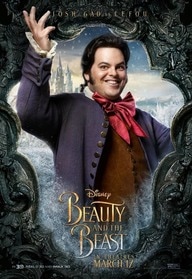 The moment of greatest concern has been the “exclusively gay moment” that has been causing a buzz. LeFou (played by Josh Gad) is Gaston’s sidekick who seems to have some unresolved feelings for Gaston. The nature of these feelings is subtle and is mostly disguised as innuendo, which is not uncommon in most films today. It’s played in a comedic way, but to Christians, it really shouldn’t be that amusing. Right at the beginning LeFou asks why Gaston wanted Belle “when you’ve got us.” One moment, when Gaston looks at himself in the mirror, he says, “I’m not done with you yet,” LeFou in return looks at himself in the mirror and says “Me neither.” LeFou lifts his shirt to reveal a bite mark that was apparently made by Gaston in some sort of wrestling match. As far as physical contact, you see LeFou rub Gaston’s shoulders, try to force an awkward dance moment with Gaston’s arms wrapped around him, and at one point, Gaston a little close to Lefou’s face in an awkward moment. Even in all of this, Gaston is way too full of himself and determined to win Belle as his prize to realize that LeFou feels this way about him. The two moments of greatest concern are toward the end, and the worst doesn’t even involve LeFou at all. When the villagers are battling the enchanted objects in the climate of the film, the Wardrobe faces off with three men. She attacks them with fabric, wigs, and makeup. Two of three men look at themselves and run away in terror, but the third turns toward the wardrobe, smiles, preens himself, and walks away proudly as the wardrobe sings, “Be free!” Then, in the final scene of the film, at the celebration ball, the men and women surrounding the Belle and the Prince are doing a traditional dance of the period which includes the switching of dance partners. As it turns out, when LeFou tries to switch partners, he winds up dancing with the man who liked himself in the dress. They both look at each other confused as they twirl for a moment. And that’s it. It’s on the screen for two second, and if you blinked you missed it. Plus, it was quite obvious that it was an accident on the part of the characters. You don’t have the opportunity to see if they react any further than their initial confusion. That was the “exclusively gay moment” everyone has been going on and on about. And it looked like an accident. It was completely and totally unnecessary. Even many secular reviews are agreeing that it was unnecessary to the plot and not that well played out. It added nothing to the overall story. It just added fuel to the fire of the agenda that the world has been trying to get us to accept as normal. In that respect, we shouldn’t be surprised. We should have seen this coming from ten miles away. Even the implication that this man dressed as a woman could find freedom in doing so shouldn’t be shocking. I think it wasn’t that big of a deal to the importance of the plot, but they wanted to make sure that it would be noticed by causing a stir about it right before the film’s release. And it worked. My conclusion is that, although I am disappointed that this content is in the film, it did not ruin the movie, and I don’t think it should prevent Christians from seeing it. I have actually seen some Christians take the stance that it would be a sin from someone to go see the film because it supports homosexuality. Although it’s true that the filmmakers do apparently support those choices, the references and innuendo is just as bad as any heterosexual innuendo we endure today in PG-rated movies and TV shows. The references are not blatant and should not be treated like they are. Just be careful to not be amused by these moments and notice them for what they are – a vain attempt to normalize same sex attraction. In light of all this, I have been debating ever since I saw the film if I would recommend this film to families with children. And in the end, I decided to conclude that it should be left to the discretion of the parents. If you are a parent, I would encourage you to educate yourself about these moments in the film by reading a few solid Christian reviews of the film to determine if you think it’s safe for your children to see. I personally think that almost all of these moments described above (except for the man dressed as a woman) would go right over most of their heads. And the moments that they do notice can offer opportunity to discuss about what God thinks about these behaviors if they are old enough to understand. This film presents this behaviors in a mild way, but I think there will come a time when the presentation will not be so mild, and it will become a moral dilemma if we choose to view them ourselves as adults. Therefore, some of you might want to take the opportunity to view this with your kids as the opportunity for discussion. For example, if you do discuss the moment of the man dressed as a woman, I would encourage you to tell them that freedom can only be found in the Christ, not in anything we do to ourselves and for ourselves. Just remember to look at all of it in light of what God says, not what the world says. Other Things I Noticed in Beauty and the Beast A few other elements stood out positively: Casting – The casting of this picture was absolutely perfect! All accomplished actors in their own right, but together, they were an amazing ensemble. Music – The music was also wonderful, just like the original film. All the songs from the original film are included (with the exception of the reprise of "Gaston" that didn't fit with some of the plot changes), but some were reworked to fit better in a live action content. Some songs had new lyrics, or lyrics that were discarded from the animated film, but worked well in live action. There were also a few new songs written by Alan Menken and Tim Rice. At first I didn’t know if I would like them as much, but I found that I did enjoy them, especially the Beast’s new song “Evermore.” They all fit into the content of this live action adaptation very well. A few other elements stood out negatively: Gaston’s Deception – Gaston is a man that is insistent on his own way. It’s pretty clear that he would do anything to get it. When Maurice tries to get help when Belle is taken prisoner, Gaston offers to help trying to win Maurice’s favor. But when they are unable to find it and Maurice tells Gaston he would never marry his daughter, Gaston knocks him out and ties him up to be eaten by wolves. When Maurice survives and returns to the village, Gaston lies and convinces LeFou to lie as well to cover up his attempt to murder Maurice. They he tries to have Maurice committed to an asylum to silence him. It’s pretty sad that Gaston is so self-serving that he would do all this to protect his image and get what he wants. LeFou’s Double-Mindedness – LeFou faces a few moral dilemmas as he watches Gaston’s deception, but ends up going along with most of it to keep Gaston’s favor. When Gaston ties up Maurice, LeFou asks if they could find a “less gruesome alternative,” but Gaston insists. When Maurice returns and claims that LeFou saw what happened, LeFou caves until the pressure Gaston puts on him to lie. LeFou is especially conflicted when they want to send Maurice to the asylum. It’s not until the battle with the enchanted objects that LeFou switches sides when he realizes that Gaston and those siding with him were losing. He choose what was convenient for him, not what was morally right. Final ThoughtsAlthough this adaptation had some short-comings, I enjoyed it very much. It preserves the essence of the original film while still being uniquely its own. All the elements within it came together so perfectly. This version, along with the original, has become one of my favorite films of all time. I will cherish the event of seeing it on opening night for years to come. It was a special memory made from a special film. Despite the parts I disagreed with, I still find this to be a wonderful film that I recommend to adults that like Disney without hesitation. That’s because, even with the deception that rest of the world tries to interject into this story, the powerful truths at its core cannot be changed – true beauty is found within, and redemption is a tale as old as time. I hope that if you choose to go see this film, those themes will be what stands out to you, no matter what the rest of the world says. Content Ratings [If you would like to read my blog post on the reasons I love Belle and want to be like her as a person, click here]
0 Comments
For people that know me well, it's no secret that I love Belle and Beauty and the Beast. Although I love most Disney movies, this one is #1 in my book. I have a huge collection of what I call "Beauty and Beast paraphernalia." I've dressed up as Belle at least half a dozen times in two different costumes. I don't even know if I could begin to count the number of coloring pages I've colored of Belle (and the other Disney princesses) over the years. But to be honest, I don’t know exactly when it happened that Beauty and the Beast became my favorite movie. I do know that I always loved the video as a kid, that I loved it when I got to meet Belle at Disneyland when I was 15, and that I started my Belle collection shortly after. Other than that, I’m not really sure when it happened. But one thing I do know is that my love for this film has only grown as I have gotten older. I see so much depth, symbolism, and wisdom in this version of the fairy tale. Being a princess story fan, Belle has become my favorite princess. But the reasons I love her go far beyond her beauty or her happily ever after. It goes to the heart of her character. In a similar way as I did with Cinderella, I’m going to list the character traits that I admire the most in her. 1) Her Modesty (Inner Character)
This line really does make me think of Belle, because although it seemed that everyone else in her town thought she was beautiful, she was totally unassuming about it. She was a natural beauty that was comfortable with herself. She had no idea how beautiful was, or how her beauty was perceived by everyone around her. Aside from her struggle to fit it among the people in town, she was very comfortable with who she was as a person and a woman. She wasn’t seeking out a man for affirm her or romance her (unlike many Disney princesses or heroines). But the thing that strikes me the most about it is that Belle was a young woman whose inner self matched her outward appearance. With Belle, what you see is what you get. Unlike most of the other princesses, Belle had nothing to hide about herself and was able to be transparent. This revealed that she was a kind young woman that was tender-hearted towards those in need. I personally think that her transparency was part of what made the people in town uncomfortable around her. But this quality was part of what aided her in reaching the Beast. As I look at this quality in her, what I want for myself is the ability to have my inner self matched my outward appearance. So many of us struggle with putting on façades of external beauty to mask the struggles we face or the insecurities that make us vulnerable. But Belle is a great reminder that when we open with who we are but also show kindness to others, we can reach people on a deeper level. It’s when we achieve this kind of a mindset that I believe we are able to have our insides be reflected externally in a positive way. 2) Her Sacrifice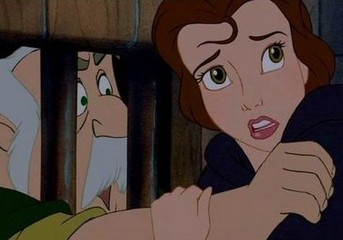 I think this part of the story is rather unappreciated, because it really it one of the most important elements of the whole story. The sacrifice that Belle makes for her father’s life is huge! It a significant element of the original fairy tale that Belle’s father had to bring one of his virgin daughters (since he had two other daughters and a few sons) as ransom for trespassing on his castle grounds, and that she had to agree to stay of her own free will. Yet this sacrifice in the Disney version, although it is there, is often not appreciated fully enough. Belle gave up everything, even her relationship with her father, to save his life. She agreed to live in a dark dreary castle with a beastly creature, all because her father would of died under the same conditions. It did become a little easier when she found out that she didn’t have to live in dungeon and that the castle was enchanted, but it doesn’t change the fact that she gave up everything for her father’s sake. All she had to call her own was her horse and the one dress on her back. This also illustrates the love and devotion she had for those she loved. And there is definitely a profound lesson to be learned from it.
3) Her Choice To Be Content Despite Her CircumstancesIf I had to pick one character trait in Belle that I dislike in her, it’s her discontentment in the beginning of the film. (I'm also not a fan of the fact that she was being a snoop when she went into the West Wing. But she learns her lesson there too) The fact that she is calling the town that she’s living in “provincial” implies that she thinks this is a boring town where nothing out of the ordinary ever happens and she was tired of it. She didn’t have any deep relationships or friendships because everyone thought she was odd. But it also stands to reason that she was bored with the people around her too. Her desire for adventure was underlined with a desire to escape the boring life she was currently leading. However, after she makes the selfless decision to sacrifice her freedom for her father, her attitude changes. In the Broadway play, Belle’s song Home reveals her struggle to be content in her circumstances, because she doesn’t feel like she could ever call the Beast’s castle home. But in the end, not only did she realize that it was wrong to complain about the town she lived in, but she resolves that she will make the best of her situation, even if she doesn’t ever quite feel at home. Eventually, she finds home among the friends she makes with the enchanted servants and with the Beast himself when she learns to love him the way he is. I think there is a profound lesson here. So although I don’t like her discontentment in the beginning of the film, she makes the right choice later, and one that I admire. We often get caught up in our present circumstances and struggle to see God’s hand in it. We try to blame Him when things go wrong and claim those circumstances are evidence that He doesn’t love us or is punishing us. These types of situations tend to make us turn inwardly bitter, often resulting in us pushing God and the ones we love away from us. Some of us even end up becoming paralyzed by our circumstances. But Belle chooses a different path than the one of bitterness and discontentment. Instead of finding peace and contentment in her circumstances, she instead found it from her perspective of hope in the middle of a difficult situation. She viewed this situation as an opportunity that she needed to make the best of, and she was made better for it. I hope to remember to find my peace not in circumstances, but from the perspective of the hope I have in my salvation through Jesus Christ and the eternal promises of God. 4) Her Ability to Look Past the ExternalAll of all the traits Belle displays throughout her story, this one is probably my favorite. Being human, it is so easy to get caught up in the external. But Belle doesn’t. I think it’s partially because, as I mentioned earlier, Belle was transparent about who she was and tenderhearted toward others. This helped her in being able to see past others’ outward appearances and see their souls. In the Beast’s case, although he was ugly, mean, and angry on the outside, Belle started to figure out that there was so much hurt in the Beast’s past that left him where he was when she met him. Once she saw that, she was able to slowly but surely get through to him in a way that soften his harden heart. It eventually helped him learn how to love. This is by far the most profound lesson from this fairy tale. The moral of this fairy tale has remained consistent across all the variations of this fairy tale over the centuries this story has been told – true beauty is found within. This moral is not just practical or truthful, but it is actually biblical in its original nature. It always makes me think of 1 Samuel 16:7b: “The Lord does not look at the things man looks at. Man looks at the outward appearance, but the Lord looks at the heart.”
When I look at what Belle does for the Beast, it brings a sobering challenge to intentionally look past outward appearances, recognize inner beauty and potential within each person, and to do what we can to bring out the best in them. In a Christian’s case, it’s means valuing them as Christ did, not matter how difficult it is. That is a tall order, and often is much easier said than done. It definitely wasn’t easy for Belle. But it’s one of the best ways to live our lives in light of the second greatest commandment – to love our neighbor as ourselves. It usually ends up bringing about change within ourselves when we devote ourselves to these tasks, which brings me to my last point. 5) Her Change of WorldviewThe last trait I see in Belle that I admire is the change within her worldview that takes place by the end of the story. Her heart and kindness remained the same, but in the Broadway play, she acknowledge that there has been a change in the way she sees the world. This all came about in the process of trying to touch the heart of the Beast. While working on touching someone else’s life, her own life was changed. The song A Change in Me illustrates two major changes that have taken place in her perspective of the world around her.
When we seek to make a difference in the lives of those around us, we cannot help but be changed ourselves. If we are trying to teach something, we will most likely be learning the same lesson we are teaching our students. Challenging others will often result of us being challenged in the process. Some might resist being challenged or changed. But Belle embraces the change in perspective she’s had from her experience. It ultimately taught her how to love the Beast. Sometimes, we need to change in perspective in order to better ourselves. Christians should embrace opportunities to change our perspective in order to conform to that of Christ. Because when we comfort to God’s will, it will often result in us learning to love other more fully. Final Thoughts“Even if she didn’t get her happy ending, her story would be worth telling because of the life she led.” An old youth minister of mine said this about Cinderella. But the more I thought about it, the more I also believe that this applied to Belle, at two different points of her story. If Belle had been locked up in the Beast’s castle for the rest of her life, even if she never befriended the Beast, her story would have been worth telling because of the sacrifice she made for her father. If the Beast had died after Gaston stabbed him, Belle’s story would still be worth telling because of how her love and kindness changed the Beast’s heart. It isn’t the happy ending that makes me return to this story again and again. It’s the lives these characters led, what I have learned from the stories of their lives, and how I have learned to apply those lessons to my life. The happy ever after is just the icing on the cake. I hope some of you are able to take these lessons to heart as well. Anyone who knows me well knows how much I love Disney movies! Because I love them so much, I’m not going to explain as much about them in this post, because I will have plenty to say when I finally have the chance to review each of these. I was so excited about this list, I couldn’t even contain it to only 10 movies! For this post, I am only going to list next to the title my favorite of the overall themes of each film to give you a taste of my thoughts. Some of you might find it interesting which ones on this list are ranked in each place. Let’s take a look: When I review these movies, I will find both the positive elements of the plot and the negative elements of the plot, in hopes that you will be challenged to see them from a new perspective. There are others that I may review in the future that are further down my favorite list as well. There are two movies in particular that I will review that are not on my list – The Little Mermaid and The Princess and the Frog.
I hope you enjoyed this short post about my favorite Disney movies. Tune in next week to find out about my favorite movies series and favorite Christian books. * Although I have written a post that compares her admirable traits in the two different Disney portrayals of Cinderella, I plan to specifically review the animated version eventually. To read this post, click here With the release of the new Cinderella movie, I want to take the opportunity to talk about this incredible character and what I love about her. But to illustrate why I love her, I think I need to talk about the arguments that many have used against her. Back in my teen years, I used to love the Cheetah Girls movies. I loved their music and their sisterhood. One of the songs from their first movie was Cinderella, and although I still like parts of it, it does illustrate the flaws that many in today’s culture find in Cinderella’s character. This song is very much in line with feminist arguments that we can do it all ourselves and don’t need a man. I have a problem with people blaming Cinderella for creating the problem. I don’t see that in her at all. In fact, she is probably one of the strongest heroines Disney has made to date, especially with the way she is portrayed in the new movie. There is so much more to her than her love story or her happily ever after, more than most people realize. As I watch the original movie as well as the new one (I went on opening day!), I have come up with a list of five qualities she has that make me want to be like her.
It was important for her to have a selfless heart when she was faced with loving those that were difficult to love. He continued to be kind and selfless, even when she received no kindness in return and when those receiving her kindness did not deserve it. This kindness she had towards all was inspiring to those who knew her, and it should be inspiring to us too.
Something that stands out to be about Cinderella’s courage is that she was not necessarily bold or brave. These tracts are sometimes made synonymous with courage, but that may not be completely true. She had the courage to stand up for herself but chose not to on many occasions. It reminds of the quote about courage from The Princess Diaries, “Courage is not the absence of fear, but rather the judgment that something is more important than fear.” In this way, Cinderella almost showed more courage by not standing up to her stepmother, because she overcame her fears and sadness but made the judgment that honoring her parents’ wishes was more important that being right. That’s an important lesson for all of us.
Although I don’t completely agree with the line of the song “No matter how your heart is grieving, if you keep on believing, the dreams that you wish will come true,” I do think there is a grain of truth in it. As Christians, we should never assume that God will always fulfill our greatest wishes. That’s just not true. There are some dreams that will probably never be fulfilled in this life. However, I think that what a Christian should do is put their hope and trust in the Lord, not in their dreams. Because once your heart is in line with the Lord, He will give you dreams that are in line with His will. Those are the ones He’s more likely to fulfill. But even if he doesn't He will teach you to be satisfied in His hope, and that is so much better than any dream that can be fulfilled in this life.
The word submit is properly defined in the military sense, choosing to put yourself under the authority of your commanding officer. Even if you don’t agree with what they are doing, you keep yourself under that authority because that is what is being asked of you. This is exactly what Cinderella does. Out of respect for her parents, she places herself under her stepmother’s authority, even though she proves to be less that deserving of that authority. Cinderella has to purpose herself to obey, even when it was hard. We should all learn to do likewise.
When I did the same Disney Character Challenge for myself, I listed Cinderella as the one of two characters I wanted to be the most like (the other one I've save for another post). After saying I wanted a heart like Cinderella, I said, “I hope and pray to have a testimony that not only reflects a good heart, but that also brings glory and honor to my Savior, and I hope that is a story worth telling someday.” I still hoping and praying this will is true of my own life story. Despite what the Cheetah Girls tried to tell us, Cinderella would be a great person to be like (although I hope to do a little better job of making sure my shoes stay on my feet during special occasions! haha). I hope that some of you are able to follow her example.
|
Lion's Eyes Reviews is a blog dedicated to reviews of Christian books, most of which are non-fiction, but may also occasionally review movies and musicals. It will also feature the work Bethel does to help launch and promote the works of Christian authors.
The name is derived from one of Bethel's favorite books, Through the Eyes of a Lion by Levi Lusko. Through these reviews, Bethel hope to give Christians the tools they need to look at the world "through the eyes of a lion" so they can find the courage to "run toward the roar". To find the detailed archives of these reviews, you can check them out here: Books In Review Movies in Review Broadway In Review Quick Reviews To understand the rating used in these reviews, click here Categories
All
Archives
May 2024
|
|
Bethel Grove is a Christian young woman who loves to read and write, eat Reese's Peanut Butter Cup Blizzards, and disciple teen girls as a youth leader. What started as a hobby of writing book reviews and doing deep biblical studies eventually led her down the path of self-publishing and helping other Christian authors launch their books. She hopes to someday be a vocational youth minister and well-known author.
Follow AUthor Bethel Grove
|
Receive This eBook for FreeSign up for Bethel's newsletter to receive monthly updates for Abiding Grace Ministries, and you will receive a copy of this exclusive eBook for free
|


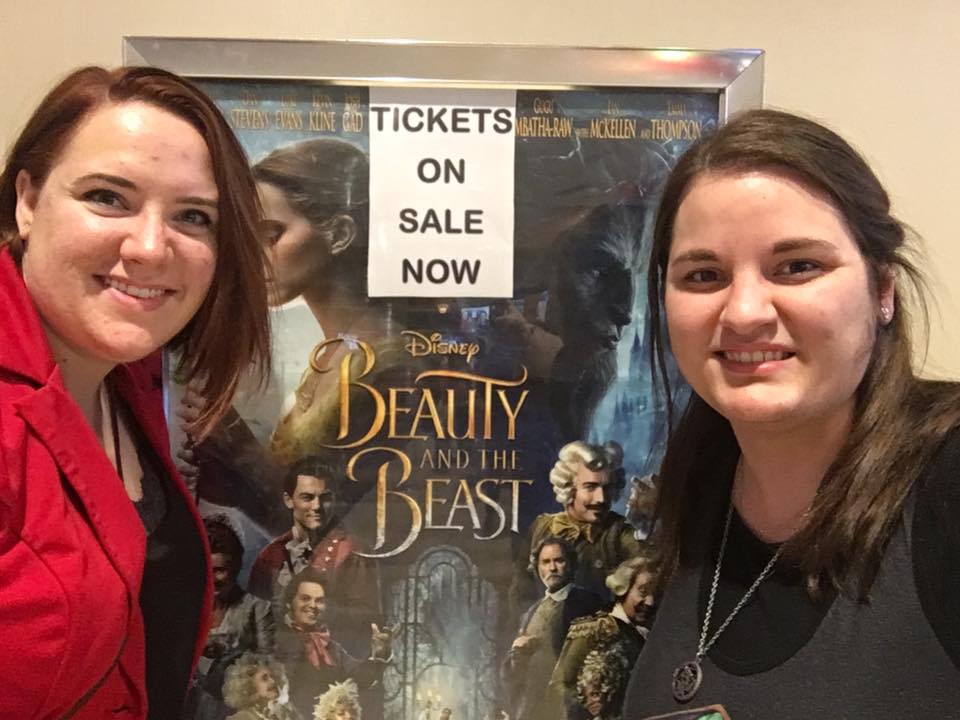
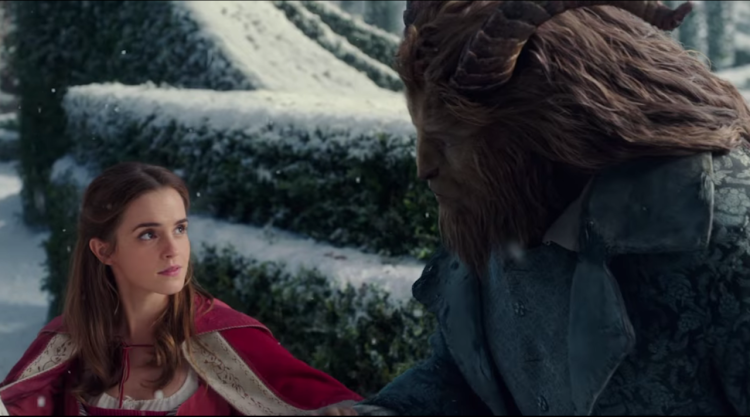
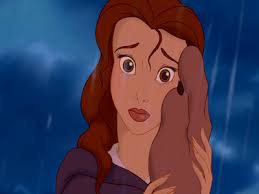
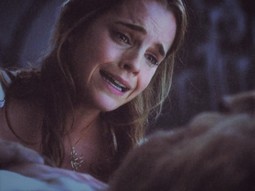
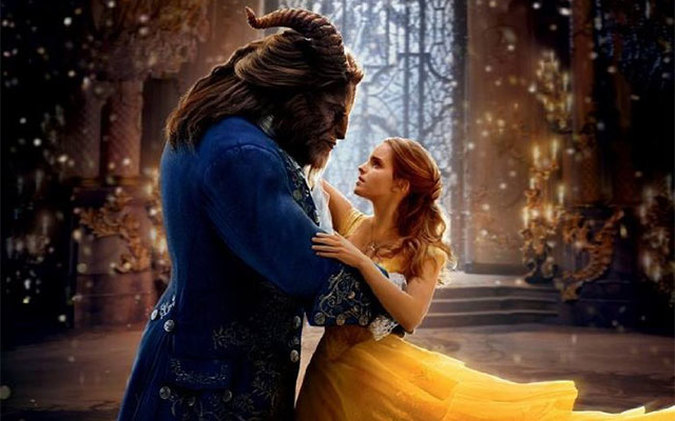







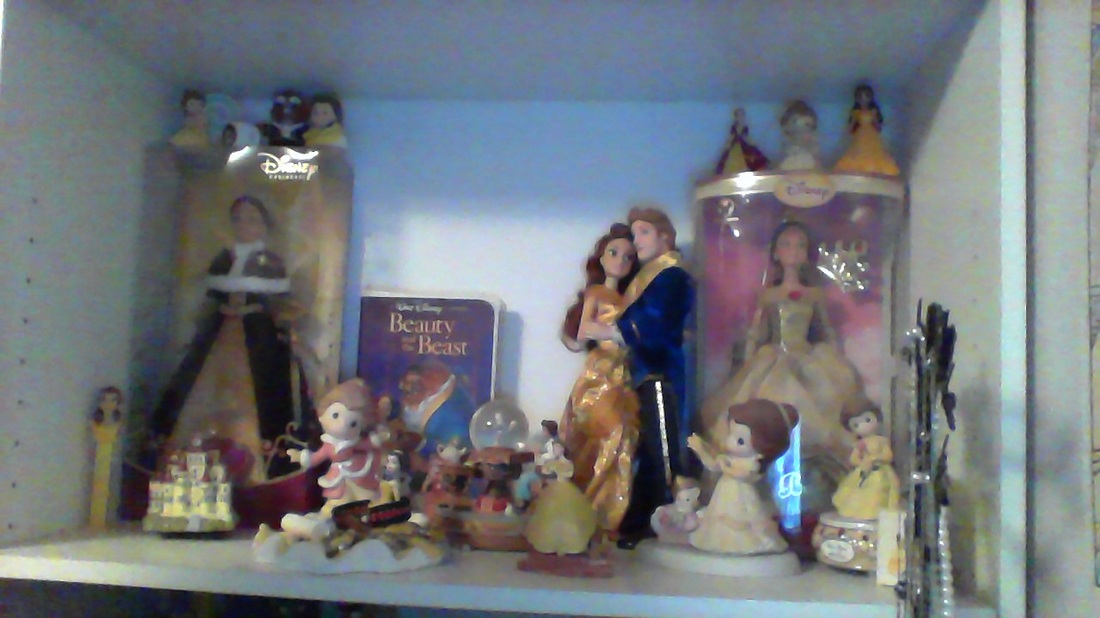
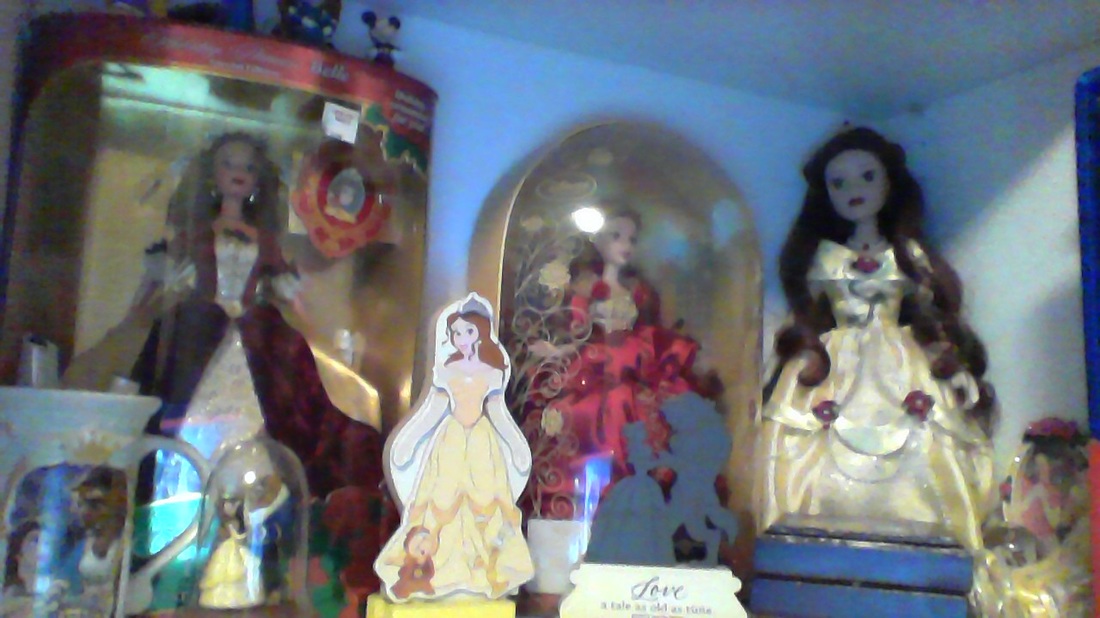
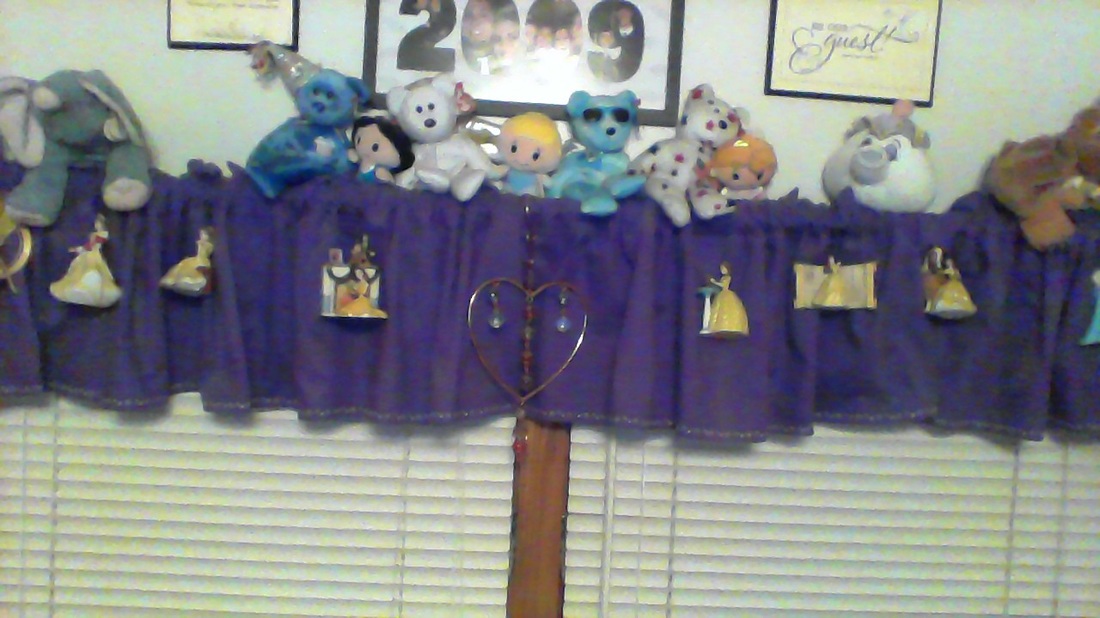
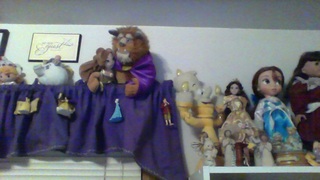
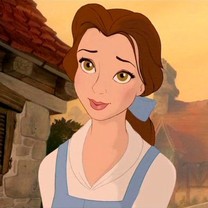
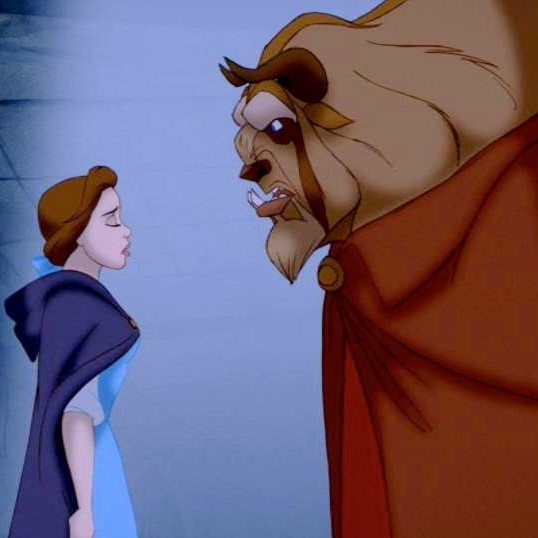
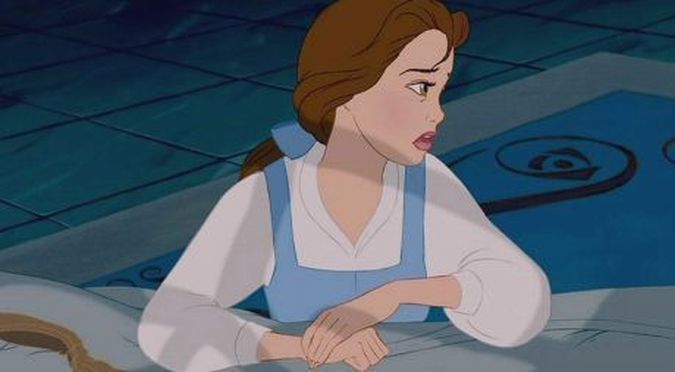
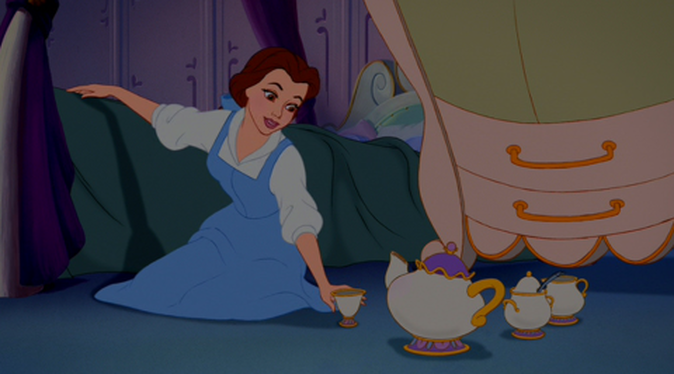
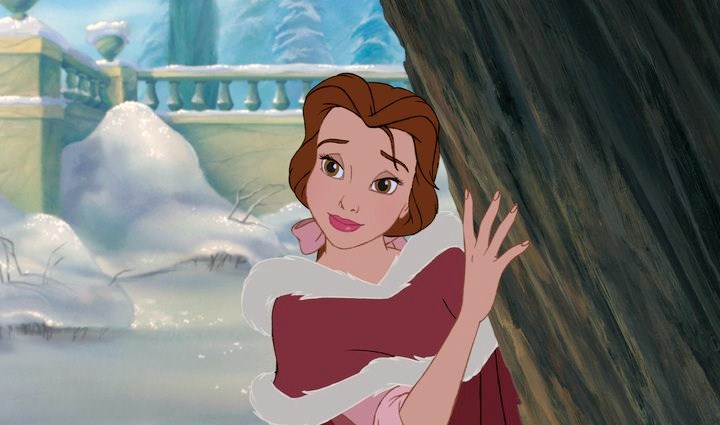
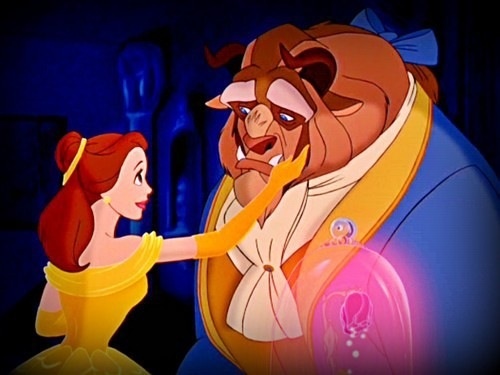
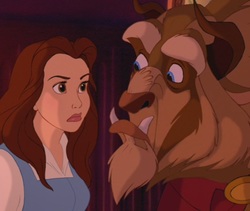
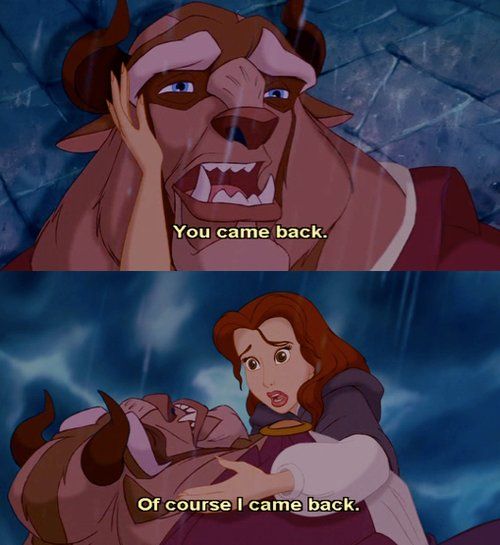
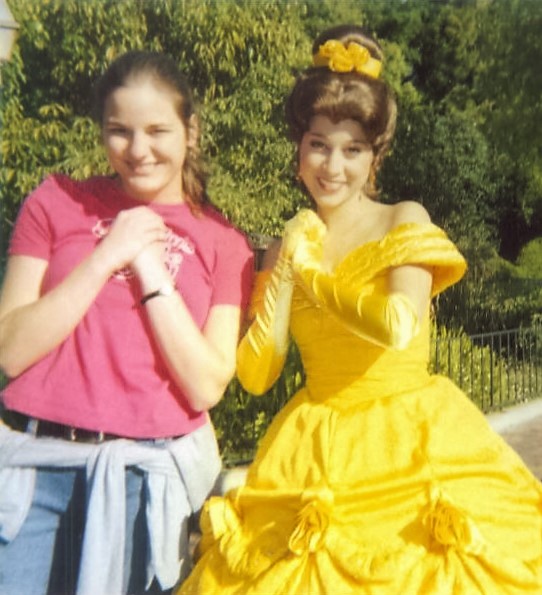
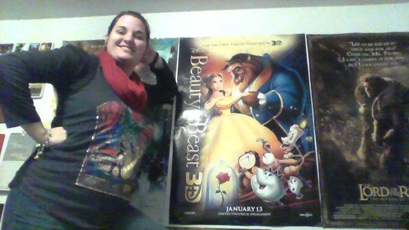
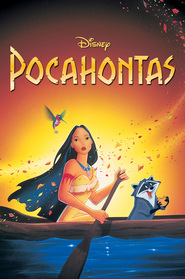
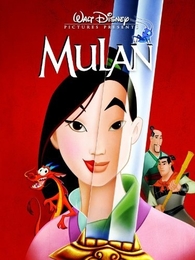
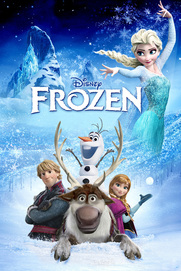
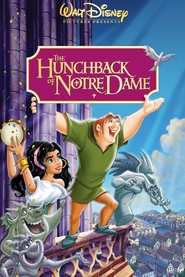
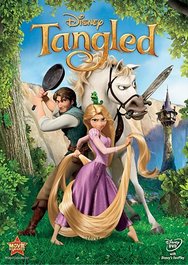
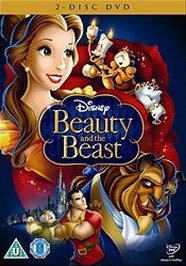
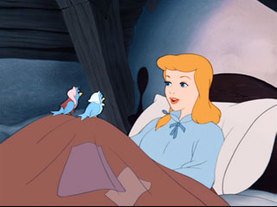
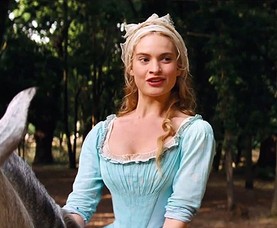
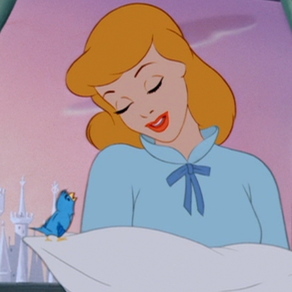
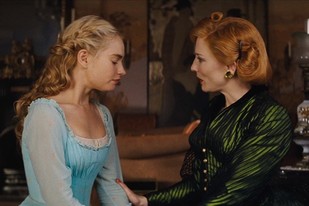
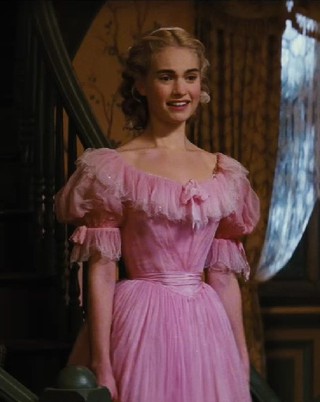
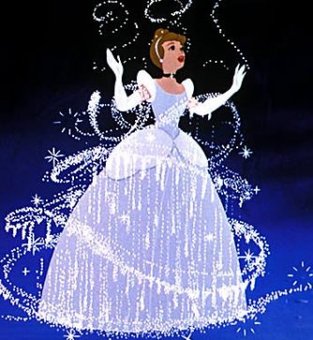
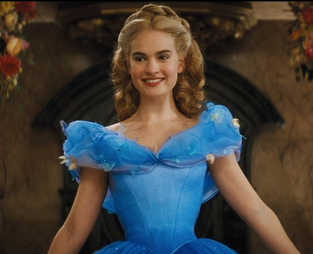
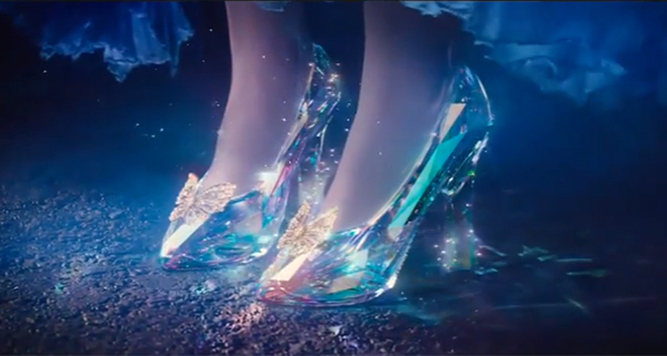

 RSS Feed
RSS Feed

